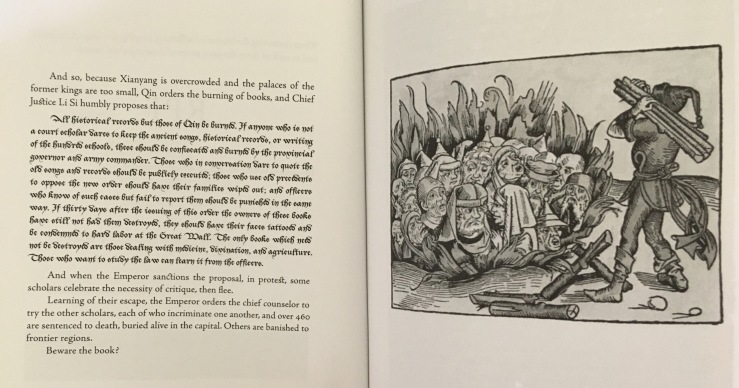The full metaphor is not accepted any more. It isn’t taken seriously, and as we say, an arm of the sea threw a curve at the batter. No. Things do deflate and become literal in that sense. That is a conventional, standard way of thinking. My notion of metaphor comes again from scientific practice. Science consists of two realms of scientific operation: on one view, mathematical systems are proceeding and developing on their own, with their own rules on relationship. Then on the other side you have a collection of observations — very chaotic, unorganized. The idea of science is to get the observations into the system, because over here in the system all is wonderful, deductive, clear (relatively speaking). If we could get the observations over here, we could create a model which is an invested system. What Galileo did, for example, was to figure out how to get motion into geometry, once he saw that an inclined plane was a triangle, or that he could get, say, distance as a rectangle with speed and time — it’s just the same formula as the area of a rectangle. Then somebody like Descartes transforms the whole science of mechanics by putting geometry into algebra—makes it a much more sophisticated, subtle system. Everything is transformed without any move except that the algebra swallows geometry, and geometry has swallowed kinetics.
So you have those great moves, and what it means is that what science does is develop a model in which we look at the shadow the tree casts, and we see a right triangle. If we make a few measurements, we make some deductions. Now, what a metaphor tends to do, it seems to me, is that one element of a metaphor tends to stand as the abstract system, while the other is the set of unorganized observations, and what you build is a model that all observational system to be structured by the abstract system is a choice — it is arbitrary, in the sense that there is nothing more abstract about the one term in the metaphor than the other. And you can have interactive ones where they take turns — this suddenly is the abstract system where it was disorganized.
Furthermore, what is the system? Let’s say, “rose.” There is a history of the term, and it isn’t organized in a nice, algebraic way. It is, in fact, this great landscape of meanings connected in various ways, and sometimes not, and even connected with other meanings — “he rose up” — just on sound parallels. We now create this model that is one thing seen in terms of this whole system. Then, just as in science, you have the scope of the law. It only holds for gases. It has only a range of things. And so there is this scope of the metaphor: How far is it pushed? Is it just to be held for a certain distance, and then dropped? Shakespeare is wonderful, because he tends to hold on to an image throughout a play.
For me, when you are doing this, you are exploring what would happen to this one meaning if it suddenly reorganized. Then it produces a multiple of metaphors, of models. One of my favorite examples is in Shakespeare’s Antony and Cleopatra, “The hearts that spanieled me at heels.” Antony is complaining that his followers have deserted him: “Hearts that spanieled me at heels, to whom I gave their wishes, do discandy, melt their sweets on blossoming Caesar, and this pine is barked, that overtopped them all.” Well, what happened there is a metaphor. “Hearts” right from the beginning is a pun on “harts,” in a way, and then the dog imagery for the followers is put inside, and then another one and then another one. Incredibly complex, incredibly rich multiplying imagery. You know how the followers behave, in detail. But every phrase is a metaphor.
From an interview with William H. Gass published in 2002 in Contemporary Literature, vol. 43, no. 4. Jim Neighbors conducted the interview.









